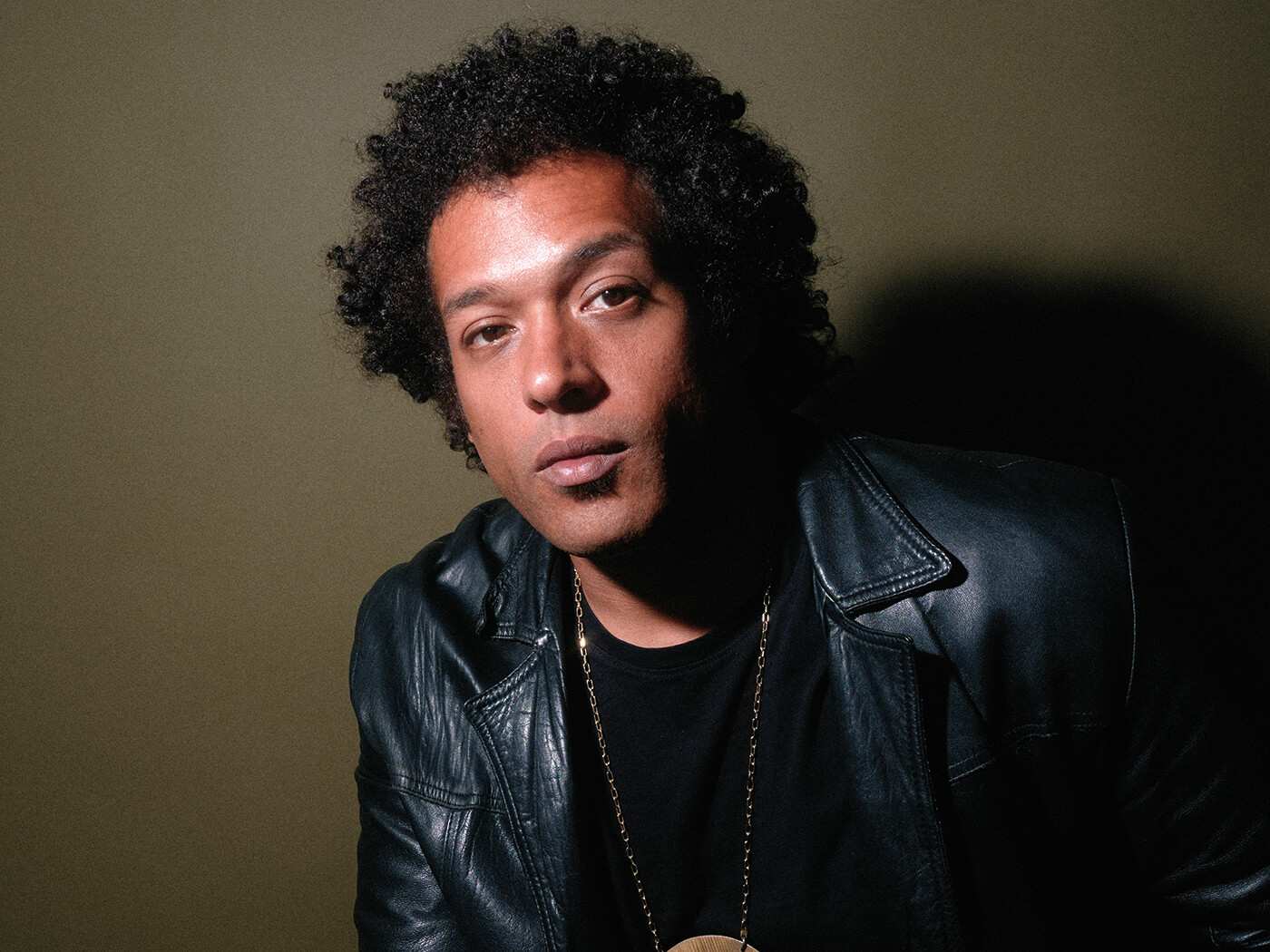Makaya McCraven’s seventh album under his own name, In These Times, opens with the sound of applause and a swarm of strings that quickly coalesce into a galloping rhythm, and then something unexpected happens: a human voice asserts, somewhat mysteriously, “I never want to be known as anybody opposed to progress… It just kinda seems to me that nobody has the right to take away our responsibility to finish what these people have died for”. It’s a clip of Harry Belafonte speaking with broadcaster Studs Terkel for his Chicago Public Radio show, and the statement neatly encapsulates McCraven’s mission as a drummer, producer and arranger. He draws from the music of the past to comment on the present, which allows the album to bound gracefully from one idea to the next – from free jazz to classical, from soul music to hip-hop, from prog to minimalism.
Born in Paris, raised in Massachusetts and based in Chicago, McCraven is considered one of the leading lights of contemporary jazz, yet to call him simply a jazz musician understates the range of his playing and the scope of his vision. He favours the spontaneity of that genre, as well as the emotional heft of spiritual jazz, but often manipulates recorded performances to find something new within the music. As he cuts and pastes, the computer becomes an instrument in and of itself. Whether he’s piecing together his own compositions or reimagining those by Gil Scott-Heron (2020’s We’re New Again) or Blue Note recording artists (2021’s Deciphering The Message), he favours dense textures and revelatory repetition, the kind of acute rhythmic variations that recall the fluttery avant-garde compositions of Philip Glass or Steve Reich and the local post-rock of Tortoise or The Sea & Cake.
Taking its title from a magazine associated with Terkel, In These Times is a solo album in name only. As on previous albums, McCraven works with a sprawling crew of players, and he foregrounds that collaborative spirit within the music, as though finishing “what these people have died for” is a responsibility much larger than one man. They recorded these performances over the last seven years at different venues, mostly in the Midwest: some takes were played live, complete with audience applause, while others were captured at studios and rehearsal spaces. Afterwards, he manipulated the recordings as though arranging personalities rather than instrument, much the way a big band leader might conduct his orchestra. With its shades of Dorothy Ashby’s afro-harping, Brandee Younger’s harp becomes a prominent element, appear on every song to add a lushness to “The Calling” and a dreaminess to “So Ubuji”. Junius Paul’s double bass keeps the low end elastic and agile, creating an almost subliminal churning underneath these compositions.
There’s a liquid quality to these arrangements, with instruments bobbing briefly to the surface before floating away. The sitar on the title track recall Thom Bell’s sophisticated Philly soul arrangements, while De’Sean Jones’ conspiratorial flute on “Dream Another” alludes to Bobbi Humphrey. On the complex “High Fives”, Jeff Parker’s electric guitar sneaks in for a few minutes, changing the course of the song profoundly. He then delivers a bluesy solo on “The Knew Untitled”, channeling both BB King and King Crimson. As a drummer, McCraven busily keeps time in unexpected ways, counting out complex time signatures and even acting as a foil for the other players. On “This Place That Place” he lands his snare taps right in between the sax notes, as though trying to disrupt them, then launches into a hyperactive drum and bass beat. Elsewhere, he supplements his playing with programmed beats, which blend into the swirl of sounds while connecting the music to the early days of hip-hop.
But it’s not just old sounds that McCraven is chasing. It’s the spirit of invention and wonder and determination that originally inspired those sounds. He’s not trying to finish what his heroes started – or “died for” – but he knows he has a duty to continue those traditions, to extend those ideas and struggles in these times. On “Lullaby” the hero is his own mother, Agnes Zsgimondi, who co-wrote and originally recorded the song in the 1970s with the Hungarian prog-folk band Kolinda. There’s a tenderness to the way he puts the instruments in conversation with one another, drawing out Younger’s harp and Macie Stewart’s melancholy violin solo. That’s ultimately what makes this record so powerful, even if you’re not familiar with its touchstones: by colliding the past with the present, McCraven makes a point of making progress.

